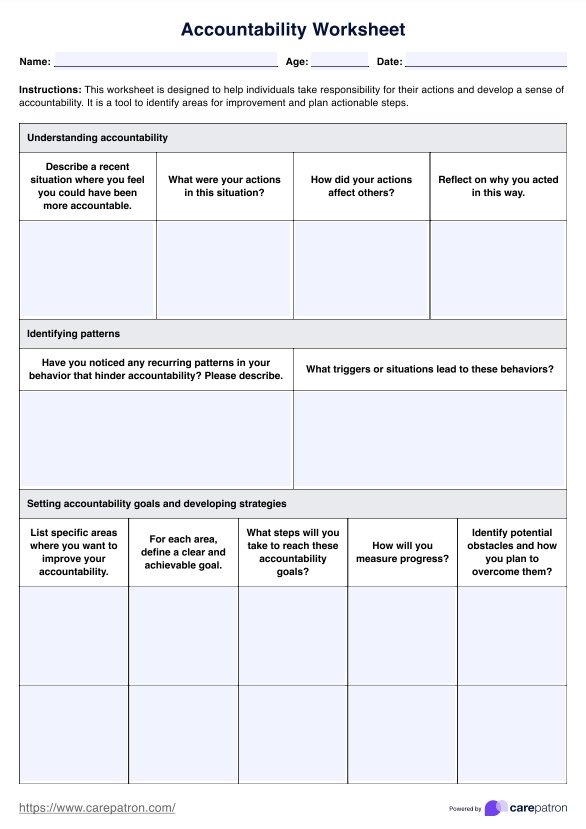The 5 C’s of accountability are Clarity, Commitment, Consequences, Consistency, and Communication. They emphasize setting clear expectations, following through on commitments, maintaining open communication, applying fair consequences, and ensuring consistent actions to build trust and reliability.

Accountability Worksheet
Help clients reflect and take responsibility for their actions with our free Accountability Worksheet for personal growth and self-improvement.
Accountability Worksheet Template
Commonly asked questions
The 7 pillars of accountability include Character, Unity, Learning, Tracking, Urgency, Reputation, and Evolution. These pillars highlight personal integrity, teamwork, continuous growth, progress tracking, proactive effort, maintaining credibility, and adapting to change.
The 3 C’s of accountability are Clarity, Commitment, and Courage. They focus on setting clear goals, committing to them fully, and having the courage to take ownership of results—whether successful or not.
EHR and practice management software
Get started for free
*No credit card required
Free
$0/usd
Unlimited clients
Telehealth
1GB of storage
Client portal text
Automated billing and online payments











